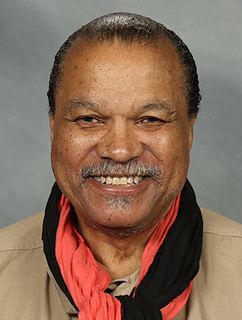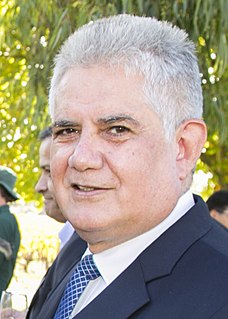A Quote by Stacy Schiff
I don't think there is ever objective biography. Our vision of our subject is always shaped by who we are. So I do, of course, think the biographer's view is always something to keep in mind.
Related Quotes
I had a checklist in my mind of the things that make a biography practical. Is the source material centralized? Is it easy to find? Are there new primary sources that no one has ever had access to? Are all the sources in English? If they're not, are they in a language that you speak? And I realized that not only is Armstrong the most important figure of Jazz in the 20th Century, but he's a perfect subject for a biography for all of these reasons. I had always loved his music and I had been fascinated in him as a personality. And that's really the key to writing a biography.
If we keep a goal firmly in mind, we will know when we have reached it. This gives us a sense of accomplishment and the challenge of establishing fresh, new goals - always keeping the long-range objective in mind. If we can state our goals clearly, we will gain a purpose and meaning in all our actions.
I have always had a tendency to keep enlarging problems which I personally think is the way the world works... that seeing anything one dimensionally on the kinds of political, sort of big issues of human progress is going to be a distorted view of things, which is why over my career I have gone seemingly from subject to subject to subject.
It's a huge assortment that we have under our roof and I don't know, it's just managing a taste level and execution of a vision. I think our team does as incredible job at it but it takes incredible leadership and I'm only really a spark for all of that. I'm not out there at every trade show, and so having an amazing team that can keep that vision month after month and keep the assortment consistent is a huge challenge. But something I think we execute every well.
I think if you think of our lives as musicians, it's craftsmanship. We're not artists, we're more artisans. You know, I don't think we view ourselves as musical geniuses who can just make some sort of wonderfully beautiful record out of nothing. It's something that we work at. And if we keep working, hopefully we'll keep improving.
In the beginner's mind there is no thought, "I have attained something." All self-centered thoughts limit our vast mind. When we have no thought of achievement, no thought of self, we are true beginners. Then we can really learn something. The beginner's mind is the mind of compassion. When our mind is compassionate, it is boundless. Dogen-zenji, the founder of our school, always emphasized how important it is to resume our boundless original mind. Then we are always true to ourselves, in sympathy with all beings, and can actually practice.
Our actual lives, including our values, our social relations, our self-conceptions, and many of our concepts, are pervasively shaped both by the knowledge and by the fact that we will someday die - that we are subject to extreme temporal scarcity. There is no reason to think that, if we were immortal, the same things would continue to matter to us. We have little or no idea what, if anything, would matter to immortal beings, or even how such beings would think of themselves.
I think, over the course of one's lifetime, there are always certain core elements that are intriguing to you, and you take different looks as you get older, but it's something you keep coming back to. I've always been interested in the relationship between vulnerability and control. That's something that's a big thing for people, whoever they are, no matter how old you are. I think at different times, you're more aware than others.
I've always had a love of cards, ever since I was a little kid. I think poker, as a system, describes the chaos of the world. Our sudden reversals, our freak streaks of fortune. The belief that the next hand can save you, and the inevitable failure of the next hand to save you. I think that describes my world view pretty well.






































